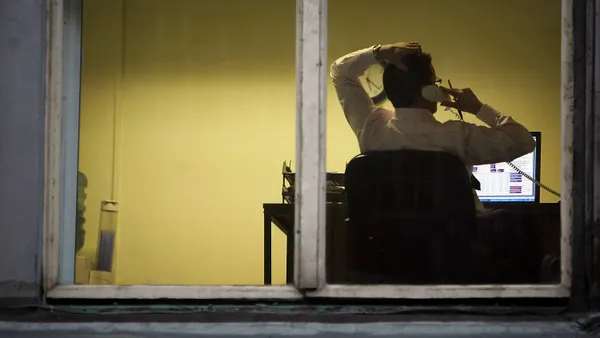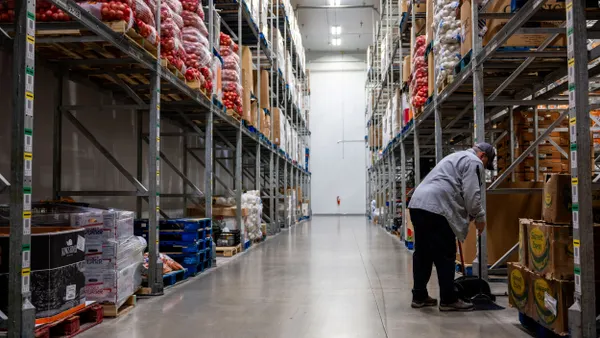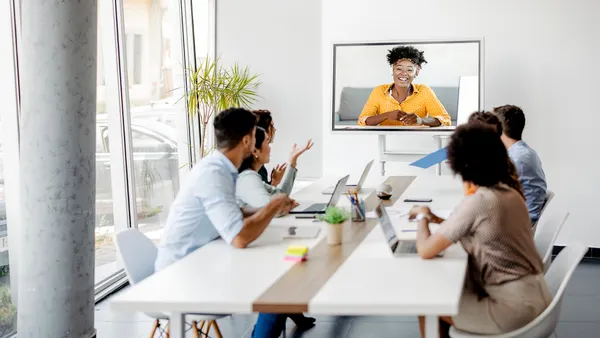HR professionals whose work is concentrated in workplace learning and development manage an array of practical day-to-day learning objectives to build individualized and institutional knowledge, with an eye toward the future and a plan to stay a step ahead.
Melike Aydin, chief learning officer and co-founder at UP School, has served in marketing roles at multinational companies Nestle, General Mills and Danone, but she said her true passion was in understanding the principles of learning and development and improving education for all.
UP School leaders Aydin and Mina Ilkoz, co-founder and CEO, met through youth training organization Young Guru Academy, where Aydin, then president of the organization, led learning and development programs with a global annual reach of more than 10,000 young people.
Then they "decided to do something about the drastic gender inequality in tech,” Aydin said.
Now at UP School, the pair deploy education and empowerment to women online through a culture of “Sisterhood.” The edtech company touts a 98% graduation rate — 80% of whom are hired by tech companies within just a few months of graduation.
Aydin discussed successes and challenges of her work at UP School in an email exchange with HR Dive, which has been edited for clarity.
HR DIVE: Up School, located in Istanbul, Turkey, is an interesting model of L&D to produce greater numbers of women in tech. Please share more about the organization and your perspective on the necessity for this model.
MELIKE AYDIN: UP School students learn technical skills like web and mobile development, data science and robotic process automation, as well as life skills like resilience, creativity and collaboration.
A recent report from the World Economic Forum shows that we need 135 years to close the gender gap. Women deserve better than that. Female workforce represents only 30% of the tech sector globally and in developing countries like Turkey, it is even worse — 10%.
What is the range of activities that make up your day as CLO?
AYDIN: Most of my day is spent in a test-learn-iterate cycle for existing programs and in curating new programs. I love learning about learning. I try to start my day with my own learning journey, dedicating 1-2 early hours to the science behind learning and development. Using real time data for student performance (attendance, engagement, feedback and grades), I check for any red flags in our daily routine. If I spot a student needing more attention, I connect the student with support through mentors and instructors. I also check in with mentors and instructors, and join my co-founder in making corporate pitches.
Interviews with potential instructors are also an important part of the job. Although I am not an instructor myself, I try to meet with different cohorts of students at least once each week.
In the role of CLO, what is your criteria for selecting new training? How do you measure learning outcomes?
AYDIN: To select new training, we start from the end — the demand in the job market. By talking to tech recruiters and tech companies, we first gain an understanding of skills with the highest talent demand, then we decide on a program to train female future tech leaders with that specific skill set. For example, recently tech recruiters have complained about the shortage of mobile developers, so just a month ago we started IOS/Android developer programs.
Peer-to-peer learning is at the center of UP School’s methodology. In order to cultivate this collaborative culture, we try to focus students on competing with their earlier performance rather than each other. All of our curriculums have several tasks, projects, assignments which are graded automatically or by our community of teaching assistants. We measure student performance with our grading system, which includes attendance and Discord activity rate.
Specific to Up School’s gender-affirming business model, what obstacles have been encountered? How was the organization able to overcome them?
AYDIN: Learning a new skill is a tough journey, especially online, without the social support of teachers and mentors. After interviewing with almost 1,000 young women, it was clear for us that the main obstacle between women and tech careers is not the tech-skills gap, but the confidence gap. So we built a wholesome program that integrates tech skills with core skills to prepare women for a strong start from the first day of their new job.
UP School makes the learning journey a collaborative experience in which a cohort-based structure includes one-to-one mentor support, live coding sessions, group projects and opportunities for introspection and reflection to help students to stay on the right path.
From a technical perspective, what has been the most difficult part of this work? How has the organization responded to that difficulty?
AYDIN: The most difficult part of the work, I believe, in any type of learning and development job is to scale a quality, customized, personalized learning process to thousands of people. In just 2 years, UP School has received more than 7,000 applications and we’ve only been able to accept 200 so far. We have a proven process now. It’s our time to scale and we are building our own platform which will utilize AI to replicate our customized student journey for thousands.
Among our readership of HR pros, some are considering a transition to L&D, maybe even CLO. What advice do you offer?
AYDIN: Nowadays, we live under a tremendous inflation of content being thrust on us from all around, but learning rarely happens by consuming content. Technology is advancing every second and CLOs have to learn, unlearn and relearn everyday. L&D and CLO roles are perfect for anyone who can commit selflessly to continual learning, who realizes we are always students.











